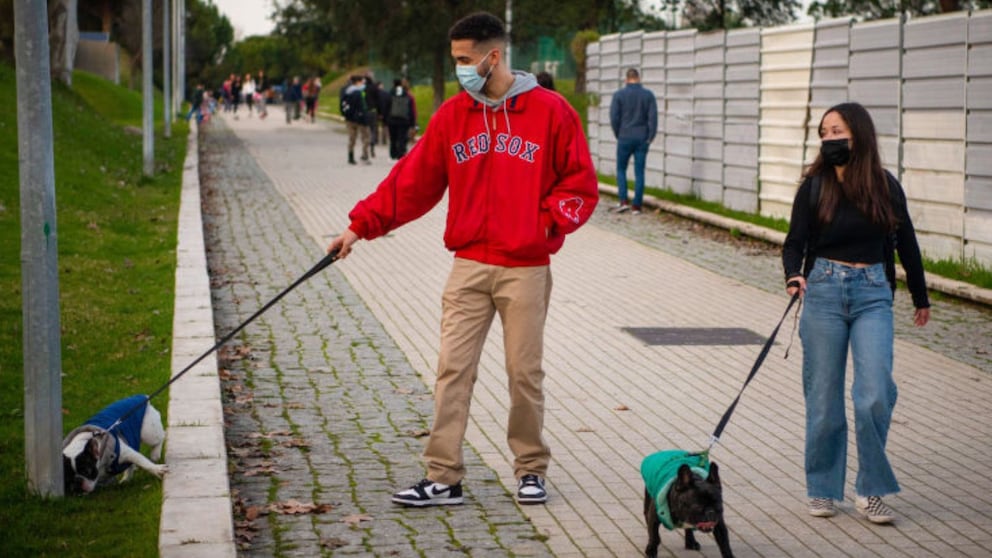February 14, 2025, 8:49 am | Read time: 4 minutes
The coronavirus pandemic brought with it a wave of spontaneous dog purchases. Many people decided to get a puppy in 2020 out of loneliness or changed living conditions. But how does this spontaneous decision affect the relationship between humans and dogs in the long term? A British study has now taken a closer look at these questions.
Just a few days ago, the fifth anniversary of the start of the coronavirus pandemic in Germany was marked. Clearly, a lot has happened during this time. There have been lockdowns, working from home, and other restrictions. At the same time, the number of pets increased worldwide during this period. Many people fulfilled their long-cherished dream of having their own four-legged friend during this time. Others got so-called “pandemic puppies” to help them cope with loneliness.
Many Brought Dogs into Their Homes Spontaneously and Totally Unprepared
In many cases, however, there was a rude awakening, as the dogs pushed the new owners to their limits, and the dog schools usually remained closed. As a result, many four-legged friends were returned and literally flooded the animal shelters. This wave of returns is still felt in animal welfare around the world today. A British study has now examined the situation and the everyday challenges faced by owners who kept their “pandemic puppies” at the time.
The UK also experienced an unprecedented boom in dog purchases during the pandemic. People who had never owned a dog before spontaneously brought a four-legged friend into their home, often without sufficient preparation. Experts, therefore, feared that these so-called “pandemic puppies” would have a higher risk of behavioral problems, a weak owner-dog bond, and even later abandonment in the long term.
What Exactly Was Investigated in This Study?
In their study, the authors of the “Pandemic Puppies” research project wanted to find out which conditions favor a stable, close bond and which make the human-dog relationship more difficult. Two central aspects of the human-dog relationship were therefore investigated:
- Emotional closeness: How close does the owner feel to their dog?
- Perceived costs: How much does the owner feel restricted by the dog in their everyday life?
The researchers analyzed data from 1007 dog owners who had adopted a puppy under 16 weeks of age in 2020 and investigated how these relationships developed. The focus was particularly on the dogs’ problem behavior – such as aggression, anxiety, or separation anxiety – as well as the reasons for buying the dog.
More than 200 Pandemic Puppies Were Returned Within 21 Months
For example, the owners may have acquired the four-legged friend due to the pandemic. The owners’ work and living situations were also surveyed and analyzed. Two rounds of surveys were conducted in order to get the best possible picture. The first survey was conducted in 2020 and covered reasons for purchase, experiences, and the behavior of the puppies.
21 months later, the follow-up survey asked about changes in dog care, problem behavior, and the human-dog relationship. However, the study ultimately only included data from owners who still had their dogs at the time of the second survey. That was (only) 794 owners.
Problems with the Dog Do Not Cloud the Bond, Except…
The study showed that problematic behavior was the strongest factor for increased perceived costs among the respondents. Specifically, this included a lack of control over the dogs, separation anxiety, and aggression.
Surprisingly, however, emotional closeness was not affected by problematic behavior in most cases. This means that the owners may have felt stressed at the moment despite problems with their four-legged friend but still had a close bond with their pet. However, there was one exception: owners of aggressive dogs felt less emotionally attached to their four-legged friend.
However, there were also factors that reduced the feeling of stress among the owners surveyed. For example, could the dog be taken to work with them, or was there a change in the main person responsible for looking after the dog? In other words, when the care of the four-legged friend could be shared.

Office dogs, puppies, training problems The sobering result after the dog boom

43,000 Animals Studied All Dogs Have at Least One Behavioral roblem

"He knows exactly what he's done." Can dogs feel shame? A biologist answers
What is the Significance of the Results?
But what does this study tell us? The authors admit that there are some limitations. For example, the participants were predominantly female, which could slightly skew the results. In addition, the data is based on self-reporting, which can lead to subjective bias. Nevertheless, the study provides valuable insights into the human-dog relationship after the pandemic.
For example, the authors of the study came to the conclusion that dogs acquired for pandemic-related reasons led to a higher perceived stress level but still gave their owners a lot of pleasure in everyday life. The relationship between pandemic puppies and their owners generally remained stable, but problematic behavior was a burden.
The results also show that a well-considered dog purchase and early training are crucial to avoid long-term problems. Supporting affected dog owners through training, education, and work-friendly solutions can help reduce distress and improve human-dog coexistence. However, the long-term effects remain unclear and require further study to determine whether or not problematic dogs are more likely to be relinquished in the long term.1

